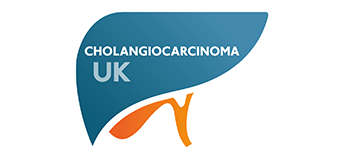Imperial CC Research Update
AMMF visited Imperial College London on 21st March, at the invitation of Professor Simon Taylor-Robinson and Dr Shahid Khan, to meet the cholangiocarcinoma research team and to receive an update on the CC research work which is being undertaken there and which AMMF helps to fund.
Our discussions were wide ranging and it is very obvious that cholangiocarcinoma is now well and truly on the map as far as research is concerned but, despite the progress that is being achieved, there is still a long way to go.
Dr Shahid Khan began the meeting with an overview of the current cholangiocarcinoma situation and where we need to go from here, summarised as follows:
Cholangiocarcinoma remains a relatively poorly understood disease with an increasingly common diagnosis that carries a high mortality. Definitive diagnosis generally requires a multitude of investigations, and treatment remains largely palliative. The complexity of diagnosis and management of patients with CC requires highly skilled surgeons, hepatologists, pathologists, radiologists, endoscopists and oncologists to collaborate as a multidisciplinary team.
The clinical priority must be to accurately identify the minority of patients who will benefit from prompt, curative resection and to optimise the palliative care of the majority who will not.
International and national scientific collaborations are crucial if large studies are to be conducted into this disease, so that new therapeutic and diagnostic techniques can emerge.
Presentations
Three research scientists then presented the current findings of their work – Dr Chris Wadsworth gave an overview of his work on a multi-modality approach for CC diagnosis, Dr Abigail Zabron described the findings of her current biomarker work, and Dr Simon Ralphs gave a progress report on the Thai collaborative work. All three made a point of thanking AMMF for the help given in funding their work.
First to present his research work was Dr Chris Wadsworth. The background to Chris’s work is the challenge of cholangiocarcinoma diagnosis. For several years he has been researching a “multimodality” approach to improve diagnosis, and has been working in three specific areas: Genetics, Proteins and Imaging.
In his genetic and protein work searching for CC biomarkers, Chris looked at different groups of diagnosed patients – depending on his area of study, those with CC, gall bladder cancer, or PSC*- and compared them with healthy individuals. He found significant areas that certainly warrant further investigation and will be followed up, eg:
• three particular genes showing changes in patients known to have CC
• several proteins raised in the plasma of CC patients
• five unique proteins found in a second investigation, needing identification and further investigation
• a plasma protein raised in those with CC and with PSC*, but not in healthy individuals.
*Primary Sclerosing Cholangitis (PSC) – a chronic liver disease which predisposes the sufferer to cholangiocarcinoma. For more information on PSC, click here.
The final area of Chris’s work involved improving imaging and the development of two completely new devices – with the intention of improving both diagnosis and the staging of CC.
One of the devices is catheter based and intended to be inserted into the biliary tree via a duodenoscope at ERCP, the other is to be integrated into an MR compatible duodenoscope. Both allow high-resolution radial imaging of tissues and the results show that very high-resolution imaging has been achieved – clearer than can be currently shown with conventional imaging techniques. Work is on going, and clinical studies are now planned.
(This work involved the collaboration of two Imperial College departments – Electrical & Electronic Engineering and Medicine.)
During Chris’s research work, a collaborative link between the CC teams at Imperial College London and the Mayo Clinic in the USA was established, and a multicentre, multinational study for CC risk factors is planned. A number of other useful collaborations were also formed with UK and international institutions, and remain active. Biobank ethical approval is in place and a UK multicentre CC biomarker programme involving sample collection has been given UKCRN (UK Clinical Research Network) support. All this will enable the positive findings in Chris’s genetic and proteomic studies to be validated and taken forward.
This body of work formed the basis of Chris’s PhD thesis entitled, “A multi-modality approach for enhancing the diagnosis of Cholangiocarcinoma”, and we congratulate him on his recent success in being awarded his PhD.
The second presentation was from Dr Abigail Zabron, who is now well in to her second year as a Research Fellow at Imperial College, funded by AMMF, and working on seeking out specific biomarkers for CC.
Dr Zabron presented her current work and this is described in her recently published paper, “The challenge of cholangiocarcinoma: dissecting the molecular mechanisms of an insidious cancer”. To read this in full, click here
And finally, Dr Simon Ralphs described his recent visit to Thailand, where he was excellently hosted by the staff of the parasitology department in the large general hospital in Khon Kaen, as he set up specimen collection to enable the the urinary biomarker work to continue.
It was particularly shocking to learn that in the Khon Kaen region alone 30,000 new cases of CC are currently diagnosed each year, with only 300 of these patients being operable.
This is almost entirely due to the widespread custom of eating raw fish infected with a liver fluke (Opisthorchis vivverini). The life cycle of this liver fluke begins in host snails, which hatch and release free swimming parasites, which in turn locate their next host, the cyprinoid fish, and gather in their fins, skin and muscles.
These fish are plentiful in in the local rivers such as the Chi River (A) in Khon Kaen province, where the local people (B) catch them, prepare them with local herbs and spices in an uncooked dish, koi-pla (C). This dish, served with rice and vegetables, is a dietary staple of many northeastern Thai villagers and so is, of course, a common source of infection with the liver fluke, which then leads to cholangiocarcinoma.
It is essential that people are educated about this – the enormous problem of liver fluke induced CC could be solved if people stopped eating this raw fish or, indeed, simply cooked it properly. (Simon has seen this dish prepared and said it looks similar to ceviche. Unfortunately, locals believe that because the lime juice they add colours the fish it is cooked and therefore safe. They also believe that whisky kills the parasite – this is also not true!!)
Simon explained that education, patient and family care is desperately needed – and for those diagnosed with CC, the majority of whom are not operable, palliative care is vestigial, to say the least.
Professor Taylor-Robinson has worked hard behind the scenes to set up this valuable collaboration, which has resulted in much needed samples being available for ongoing work at Imperial. It is hoped this work will have reciprocal benefits – not only for liver fluke induced CC but the type more common in the West, sporadic CC.
Also, the Thais are very interested in a link with AMMF – seeking ideas on patient support, fundraising, education and palliative care. Under Professor Taylor-Robinson’s guidance we will offer what support we can.
Further discussions …
Later in the day, we went on to discuss further topics – including the possibility of AMMF acting as a base or conduit for collecting information from those of our ever expanding network of supporters – those diagnosed with CC, CC survivors, and family members of those who have died from CC – who have a wealth of untapped information between them. Information of potential relevance might include location, diet, occupation, age, lifestyle, health history and so on. A suitable survey or questionnaire would need to be professionally set up, and professionally collated and analysed with a view to seeking out commonalities.
We raised the subject of liver transplantation yet again – and this seems to be as far away as ever, despite the good results in the US and the new device which should help to increase the number of available liver organs. This is a subject we will return to, without doubt.
Causes of CC were discussed, as these seem to be a hot topic once again – with new research from Italy highlighting asbestos (for further info, click here), and a high incidence of CC in Japan amongst those exposed to chemicals in the print industry (for further info, click here). The answers we received seem to indicate that anything that causes inflammation/irritation in the liver could be a possible cause of CC in those that are susceptible to it.
An incredibly full and rewarding day. It was certainly uplifting to hear about the CC research and progress that is being made at Imperial College London, and to witness again the interest and dedication that is being shown by the research team in working towards finding answers to the ruthless conundrum this disease presents. They have our sincere thanks.
April 2013







